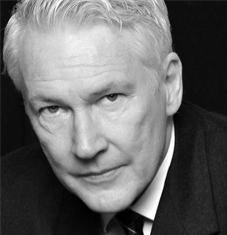Did Trump Tell Flynn to Talk to the Russian Ambassador—and Lie About It?
On Tuesday, during lunch at my desk, I watched a CNN roundtable which, though pretty hard on General Flynn, professed to be baffled as to what happened after Sally Yates went to the White House Counsel to warn that Flynn had been lying about his contacts with the Russian ambassador and that the Russians were aware of this. Why did it take seventeen days before Flynn was fired? Didn’t the president take these warnings seriously?
Published by The Lawfare Institute
in Cooperation With

On Tuesday, during lunch at my desk, I watched a CNN roundtable which, though pretty hard on General Flynn, professed to be baffled as to what happened after Sally Yates went to the White House Counsel to warn that Flynn had been lying about his contacts with the Russian ambassador and that the Russians were aware of this. Why did it take seventeen days before Flynn was fired? Didn’t the president take these warnings seriously? Shouldn’t he have been more concerned about such serious charges concerning Flynn’s vulnerability to Russian blackmail? Or, as the Washington Post put it this morning, “How the White House could have failed to heed Yates’s damning warnings about Flynn is particularly puzzling…”
But once we reflect on what most certainly is the answer to this question, the question itself looks a little absurd and one feels a good deal of sympathy for General Flynn.
Putting to one side the much more serious issue of collaboration with Russia to manipulate the election, and the allegations of an extensive effort to cover up that collaboration, it seems pretty clear what happened. President-elect Trump instructed General Flynn to tell Russian Ambassador Sergey Kislyak not to be too upset about President Obama’s new sanctions against Russia because he—Trump—planned to reverse them. It is inconceivable that Flynn did this on his own. The reason he denied having this discussion with the Russian ambassador is because the president-elect instructed him to do so. It was only when the Washington Post article appeared exposing this deception that Trump was forced to act. He didn’t see any problem with undermining Obama’s policy—after all Trump would be president in a few weeks. (Who knows whether he also told Flynn to mislead the vice-president elect so that Pence could credibly—and deniably—mislead the press and the public?)
Of course Trump wasn’t moved by Yates’s warning; he knew Flynn couldn’t be blackmailed with the threat to disclose his actions to his boss because there was nothing to expose. What Trump was worried about was exposure of his own role; and that’s why he fired Flynn with fulsome praise and the relatively-honest observation that had he known of Flynn’s contacts he would have authorized his actions.
One wonders if this episode reminds anyone of Richard Nixon’s efforts before the 1968 election to interfere with the Johnson administration’s peace overtures to North Vietnam, for which efforts Nixon too was at great pains to deny responsibility.
And since Trump has today fired James Comey, allegedly on the basis of acts that the Deputy Attorney General, and the Attorney General say provide grounds for his dismissal—which acts Trump has repeatedly and specifically praised—one wonders whether anyone around the White House is thinking of Nixon's desperate acts when he cast his loyal aides aside to lighten his foundering ship of state.





